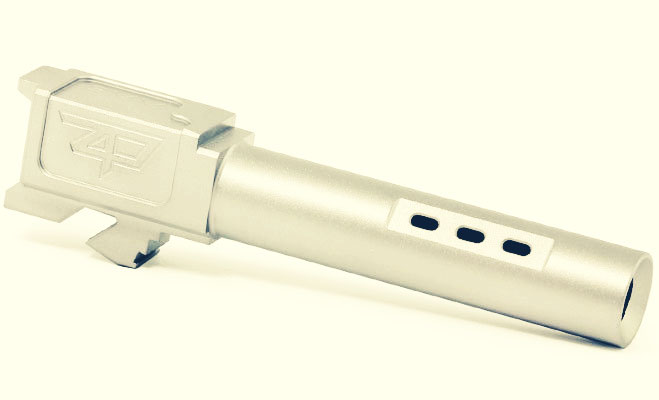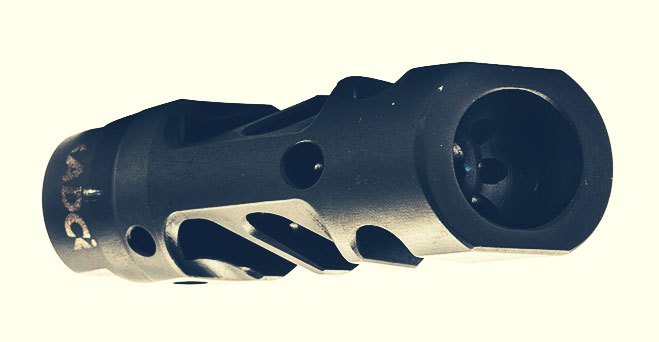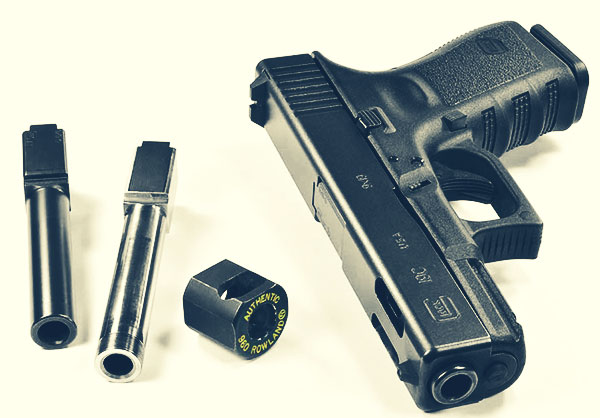A ported barrel is a barrel that has been cut in such a way as to expose the inside of the barrel to the air. This allows some of the gas that is expelled from the barrel to escape and cool down faster. A compensator is a device that is screwed onto the end of the barrel that redirects some of the gas upwards, which counteracts some of the natural recoils of the firearm.
Compensators are generally considered to be more effective than ported barrels because they reduce muzzle rise and felt recoil more effectively. However, ported barrels are also becoming increasingly popular, because they offer several advantages over compensators. For example, ported barrels are typically cheaper than compensators, and they do not require special tools or training to install.
If you are looking for a way to reduce muzzle rise and felt recoil, then either a compensator or a ported barrel may be a good option for you. Ultimately, the decision of which to choose will come down to personal preference and your budget.
There is no definitive answer to this question. It depends on the individual and their specific needs and preferences.
Here is a general guide on how ported barrels and compensators compare:
Ported Barrels:
- Ported barrels are designed to reduce recoil and muzzle rise by increasing the barrel’s ventilation. This allows gases to escape more quickly, which reduces the amount of force that is exerted on the barrel. As a result, ported barrels are typically used for shotguns and rifles that are chambered for powerful cartridges.
- The main disadvantage of ported barrels is that they can decrease accuracy. Additionally, they can also make firearms louder and increase wear on the barrel.
Compensators:
- Compensators are devices that are attached to the muzzle of a firearm to reduce recoil and muzzle rise. They work by redirecting some of the gases that are produced when a round is fired, which counteracts the force of the recoil.
- Compensators can be used on both pistols and rifles, and they typically do not decrease accuracy. However, they can make firearms louder and increase wear on the barrel.
So, which is better? It depends on the individual’s needs and preferences. If you are looking for a way to reduce recoil without sacrificing accuracy, then a compensator might be the best option. On the other hand, if you are willing to sacrifice some accuracy for the sake of reducing recoil, then a ported barrel might be a better choice. Ultimately, it is up to the individual to decide which option is best for them.
There are a few things to consider when deciding whether to use a ported barrel or compensator on your weapon.
Here is a step-by-step guide to help you make the best decision for your needs:
- What is your primary use for the weapon? Ported barrels are great for competition shooting, while compensators are better for tactical applications or self-defense.
- How important is recoil reduction to you? Ported barrels reduce recoil more than compensators, so if this is a major concern, then ported barrels are the way to go.
- What type of ammunition will you be using? Compensators work best with heavier rounds, while ported barrels perform better with lighter rounds.
- How much muzzle rise can you tolerate? Compensators increase muzzle rise, while ported barrels reduce it. If you need to keep your shots on target, then a compensator might not be the best choice.
- What is your budget? Ported barrels are typically more expensive than compensators, so if cost is a major factor, then a compensator might be the better option.
No matter which route you choose, make sure to do your research and pick the right device for your needs. Happy shooting!
There are many factors to consider when deciding whether a compensator or ported gun is right for you. Here are a few things to keep in mind:
- Your shooting style – If you shoot with a lot of forwarding torque, a compensator can help reduce muzzle rise and improve accuracy. Conversely, if you tend to shoot with less forward torque, a ported gun may work better for you.
- The type of ammunition you use – If you use lighter weights and lower velocities (subsonic), a compensated firearm will likely provide more benefit than one that is not. On the other hand, if you use high velocity or +P rounds, the higher pressures may cause the compensator to vent excessively, making the firearm less stable and accurate.
- The size and weight of the firearm – A larger, heavier gun will be more difficult to control without a compensator, while a smaller, lighter gun may not need one.
- Your shooting environment – If you shoot in confined spaces or field conditions where debris is present, a ported gun may be more likely to have a muzzle flash or debris blowback.
- Your personal preferences – Ultimately, it is up to you to decide what works best for you and your shooting style. Try different types of guns and compensators to see what gives you the best results.
There is no single answer to this question, as it depends on your individual needs and preferences. If you are more concerned with accuracy, then a compensator or ported gun may be a better option for you. However, if you are more concerned with recoil reduction, then a non-compensated or non-ported gun may be the better choice. Ultimately, it is important to try out both types of guns and see which one feels better for you.



